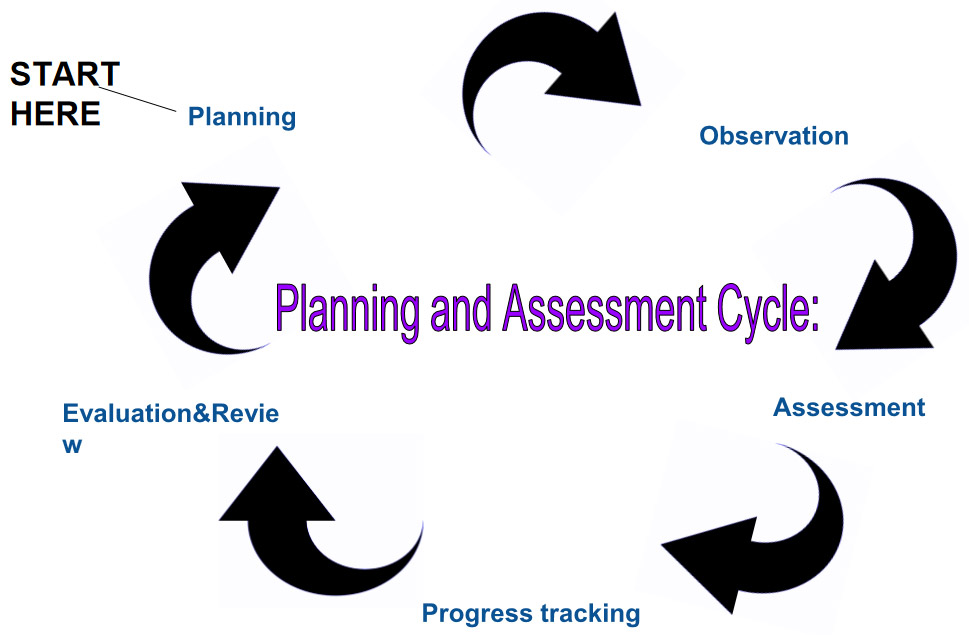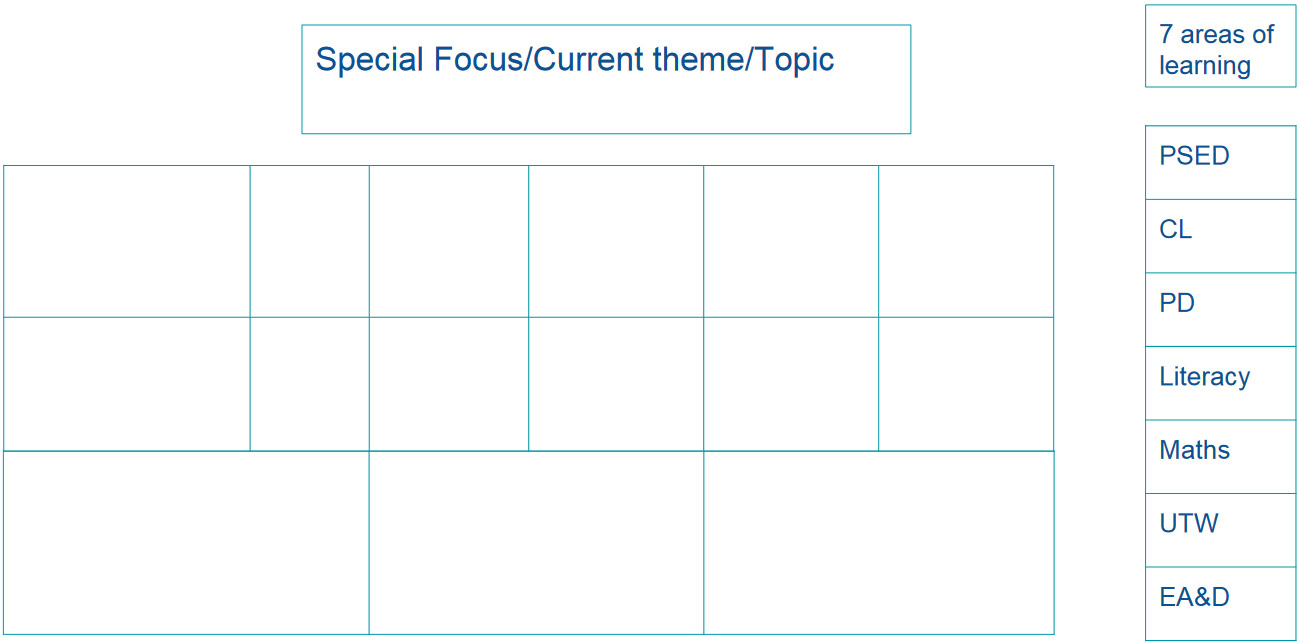Module One: Exciting activities that fire children’s imagination
By the end of this module, you will be able to use the background information gathered about a child’s interests and current stage of development to plan activities that:
- Meet the needs and abilities of the children
- Identify the range of resources that will enhance children’s learning
- Evaluate activities to assess what worked well and identify the specific things they can do better
Planning:
‘Setting the scene’
Planning a vibrant and exciting curriculum that takes account of children’s interests and builds on what children know and can do is essential.
The Five Key Stages of an Effective Planning and Assessment System
- Planning (age, stage of development interest and EYFS curriculum)
- Observation (children’s response, skills, knowledge,photos, work samples)
- Assessment (match skills observed to age related expectations)
- Progress Tracking (how well children are doing compared to set targets)
- Evaluation and review (Reshape activities to address gaps or provide challenge)

Activity 1
- Use the background information on the children i.e., interests and unique needs, the EYFS curriculum guide and the characteristics of effective learning prompts to plan activities for the children
- Draft some possible activities/experiences you may wish to provide which will enable the children to achieve these expected learning outcomes
- Include resources, organisation of space, which spaces may be flexible/adapt? Think about staff deployment: which activities can children undertake independently and which ones require adult input?
- Ensure your plan has a clear purpose,(what children are to learn) steps to success, differentiated activities deployment of adults and a balance of child initiated and adult directed tasks



Reflection Questions
- Do activities take account of the need and interests of the children?
- Do they ensure progression of skills from nursery (FS1/KG1) to the next stage, ie Reception age(FS2/KG2)
- Can resources, organisation of space, be adapted?
- Is there clear staff deployment, ie which activities can children undertake independently and which ones require adult input?
- Maintain the focus on the purpose of the learning activity, i.e. the objectives and structure activities/engage with children to ensure that the main objective of the activity is achieved
- Are all areas of learning sufficiently covered?
- Are all prime areas ie CLL, mathematics and physical development adequately covered?
- Make ongoing observation of children to identify what worked well and what could be improved

